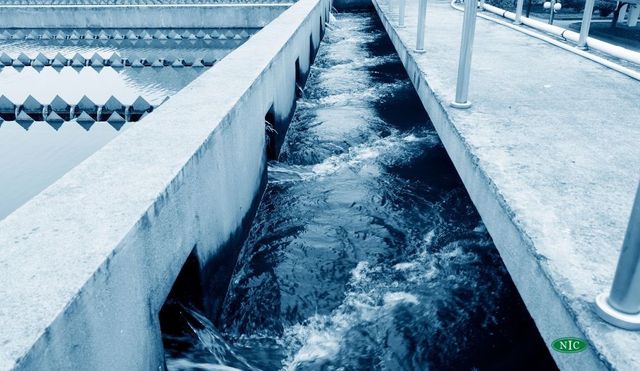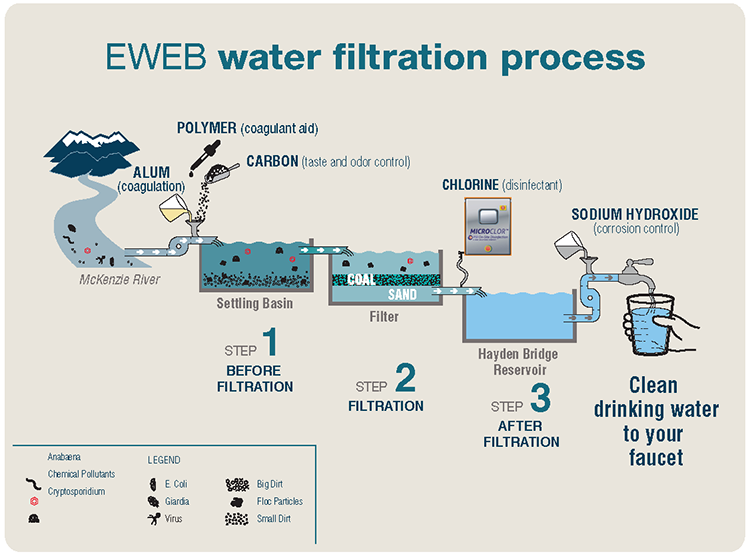How to Choose the Right Water Technology Startups for Your Investment Strategy
Wiki Article
Checking Out Water Technology Startups: Just How They Transform Sustainable Solutions
Water Technology startups are emerging as critical players in the mission for sustainable options to worldwide water concerns. These business leverage cutting-edge innovations to enhance water performance and administration. Their contributions resolve pressing obstacles such as deficiency and contamination. Despite their capacity, they face numerous challenges that can influence their success. Comprehending these characteristics clarifies the future of water sustainability and the role these start-ups might play fit it.The Importance of Water Technology in Today's Globe
As international water shortage heightens, the significance of water Technology comes to be progressively noticeable. Water Technology plays a crucial duty in attending to the difficulties presented by raising and diminishing fresh water sources demand. It encompasses a wide range of developments, including sophisticated purification systems, wastewater therapy technologies, and smart irrigation solutions. These innovations not only improve the efficiency of water usage yet likewise advertise lasting methods throughout various industries, including farming, industry, and urban development.The relevance of water Technology extends beyond resource management. It promotes resilience against environment adjustment impacts, such as floodings and dry spells, by supplying adaptive remedies for water preservation and administration. Additionally, it sustains public wellness by guaranteeing access to tidy and safe alcohol consumption water. As the globe faces growing water-related challenges, the combination of advanced water technologies is essential for cultivating lasting growth and safeguarding water availability for future generations.
Innovative Solutions From Water Technology Startups
While traditional techniques to water management have served their purpose, a brand-new wave of water technology startups is reinventing the market with ingenious remedies (Water Technology Startups). These firms leverage advanced modern technologies to resolve pushing water concerns, such as deficiency, contamination, and inefficient distribution. Several start-ups make use of expert system and equipment discovering to maximize water usage and predict demand, causing more lasting methodsFurthermore, a number of companies concentrate on creating advanced purification systems that remove pollutants and make water secure for usage. Others explore decentralized water therapy modern technologies, enabling areas to manage their water resources more successfully. Additionally, some startups are pioneering smart watering remedies that reduce water waste in farming, promoting ecological conservation.
Situation Researches: Effective Water Technology Startups
Countless water Technology start-ups have actually become leaders in attending to worldwide water difficulties through cutting-edge strategies. One significant instance is Xylem, which concentrates on water analytics and smart infrastructure to enhance water use and lower waste. Their solutions have been carried out in different communities, demonstrating significant renovations in water monitoring performance.An additional successful start-up, No Mass Water, has actually established solar-powered hydropanels that draw out water vapor from the air, supplying sustainable drinking water in arid regions. Water Technology Startups. This Technology has been released in numerous nations, making certain areas have accessibility to tidy water
AquaVenture Holdings operates a varied portfolio of water-as-a-service remedies, dealing with water scarcity with desalination and wastewater treatment. Their tasks have confirmed vital in areas dealing with severe water lacks, showcasing the potential of innovative water modern technologies to develop lasting, favorable effects. These case researches highlight the transformative capacity of startups in the water Technology field.
The Duty of Smart Technology in Water Administration
Smart Technology plays a vital role in modern-day water administration by leveraging IoT applications to optimize source usage. Data analytics enhances performance by supplying workable understandings, while remote tracking services enable real-time oversight of water systems. With each other, these advancements change exactly how water is managed, advertising sustainability and functional performance.IoT Applications in Water
As water scarcity and monitoring obstacles intensify internationally, the assimilation of Web of Things (IoT) applications has actually emerged as a crucial option in optimizing water sources. IoT Technology helps with real-time surveillance and analysis of water supply, enabling extra effective use and management. Sensing units deployed in different water frameworks can track high quality, circulation rates, and leakage, supplying beneficial information to stakeholders. This information empowers energies and consumers to make educated choices, reducing waste and improving preservation initiatives. Furthermore, smart irrigation systems use IoT to enhance water distribution for agriculture, guaranteeing that plants receive the correct amount of water at the correct time. In general, IoT applications are changing conventional water monitoring methods, fostering sustainability and strength in water resource systems.Information Analytics for Effectiveness
Using data analytics is essential for improving efficiency in water administration. Water Technology startups are significantly using sophisticated analytics to enhance source allotment and decrease waste. By assessing data from different resources, these startups can identify patterns and trends that inform better decision-making. Anticipating analytics can forecast water need, allowing energies to readjust supply appropriately, therefore minimizing surpluses and lacks. In addition, real-time information handling enables the instant discovery of leaks and inefficiencies within circulation systems, significantly minimizing functional expenses. Data-driven understandings empower stakeholders to apply targeted conservation methods, website cultivating sustainable practices. Essentially, incorporating data analytics right into water management not just streamlines operations however likewise promotes long-lasting sustainability in water resource usage.Remote Monitoring Solutions
While conventional water monitoring systems typically have problem with inefficiencies, remote surveillance options are transforming exactly how water sources are handled. These innovative innovations make it possible for real-time data collection and analysis, permitting stakeholders to monitor water high quality, circulation prices, and usage patterns from afar. Using sensing units and IoT gadgets, remote surveillance provides instant understandings that help with aggressive decision-making. This shift not just boosts operational effectiveness yet also promotes sustainability by lowering water waste and optimizing resource appropriation. Additionally, remote tracking systems can recognize potential concerns before they intensify, thereby decreasing the danger of contamination or facilities failing. As water Technology startups remain to establish these options, the market is positioned for significant improvements in sustainable water administration techniques.Challenges Encountering Water Technology Startups
Water Technology start-ups experience substantial difficulties that can prevent their growth and success. Trick issues include safeguarding adequate financing, steering via intricate governing settings, and completing in a jampacked industry. These barriers need calculated preparation and innovation to overcome.Funding and Investment Challenges
Although innovation in water Technology holds immense potential for resolving international difficulties, startups in this market commonly deal with considerable funding and investment hurdles. Many investors remain careful, regarding the water sector as high-risk as a result of its complicated governing landscape and long advancement timelines. In addition, start-ups frequently have a hard time to demonstrate prompt earnings, which can deter possible backers. Conventional equity capital may forget water innovation, favoring fields with quicker returns, such as tech or durable goods. Securing gives and federal government funding can be competitive and taxing, additional making complex financial security. Therefore, numerous cutting-edge water Technology start-ups find themselves in a ragged edge, requiring creative funding methods to browse these financial barriers and accomplish their objectivesGoverning Compliance Issues
Steering regulative compliance is a substantial challenge for startups in the water Technology market, as they must come to grips with a myriad of regional, national, and global policies. These laws usually include water top quality standards, ecological defense legislations, and security methods, which can vary extensively across jurisdictions. Start-ups may discover it difficult to navigate this complicated landscape, specifically when scaling operations or entering brand-new markets. The expenses connected with compliance can be considerable, drawing away resources away from innovation and product advancement. Furthermore, delays in acquiring needed authorizations or qualifications can impede growth and market entrance. Subsequently, a durable understanding of governing structures is important for these start-ups to guarantee sustainable operations and prevent prospective lawful effects.Market Competition Characteristics
As water Technology start-ups emerge in a competitive landscape, they face various challenges that can hinder their development and innovation. Established companies often control the marketplace, leveraging resources and experience to keep their settings. Startups battle with restricted funding, which limits r & d capabilities, making it hard to contend on Technology and pricing. Furthermore, the rapidly advancing nature of water innovations demands continuous adaptation, additional straining start-up resources. Governing hurdles can make complex market entrance, as compliance with ecological standards is essential yet pricey. Drawing in knowledgeable skill in a particular niche area offers an additional barrier, as larger companies might use even more enticing work packages. Subsequently, these aspects create an intricate environment for water Technology startups aiming to succeed.
The Future of Water Technology and Sustainability

The future of water Technology will likely focus on incorporating expert system and data analytics to maximize water distribution and usage patterns. By using real-time data, companies can forecast lacks and manage resources a lot more properly. Sustainable techniques will come to be a foundation of the sector, motivating round economies where water is recycled and treated. Inevitably, the ongoing evolution of water Technology will be crucial in developing resilient facilities efficient in meeting the difficulties positioned by environment modification and population growth while advertising ecological stewardship.
Regularly Asked Questions
What Are the Secret Metrics for Examining Water Technology Startups?
Trick metrics for reviewing water Technology startups include market capacity, scalability, consumer procurement expenses, earnings growth, technology development, governing compliance, ecological influence, competitive advantage, and group know-how, all crucial for figuring out lasting viability and success.Exactly How Can People Assistance Water Technology Innovations?
People can support water Technology innovations by buying startups, supporting for plan changes, taking part in neighborhood efforts, sharing understanding about sustainable practices, and promoting recognition of water concerns via regional events and social media.What Are Common Funding Sources for Water Tech Startups?
Usual financing sources for water tech startups include financial backing, government grants, crowdfunding systems, angel capitalists, and company collaborations. These monetary opportunities help facilitate innovation and development in lasting water monitoring modern technologies.
Which Industries Advantage Most From Water Technology Advancements?
Industries such as agriculture, power, production, and community services profit substantially from water Technology advancements. These innovations boost water effectiveness, decrease costs, and advertise sustainable practices, inevitably adding to environmental preservation and resource administration.Are There Any Type Of Governing Challenges Certain to Water Technology?
Yes, water Technology deals with governing challenges, including conformity with ecological criteria, allowing procedures, and varying regional laws. These intricacies can prevent technology and slow down the implementation of brand-new innovations in the water monitoring sector.Water Technology startups are arising as critical players in the mission for sustainable services to international water problems. As international water scarcity escalates, the significance of water Technology comes to be progressively noticeable. Others check out decentralized water therapy technologies, enabling areas to manage their water resources extra efficiently. One more effective startup, No Mass Water, has developed solar-powered hydropanels that draw out water vapor from the air, giving sustainable drinking water in dry areas. Their jobs have actually proven necessary in areas facing extreme water shortages, showcasing the possibility of cutting-edge water modern technologies to develop long-term, favorable influences.
Report this wiki page